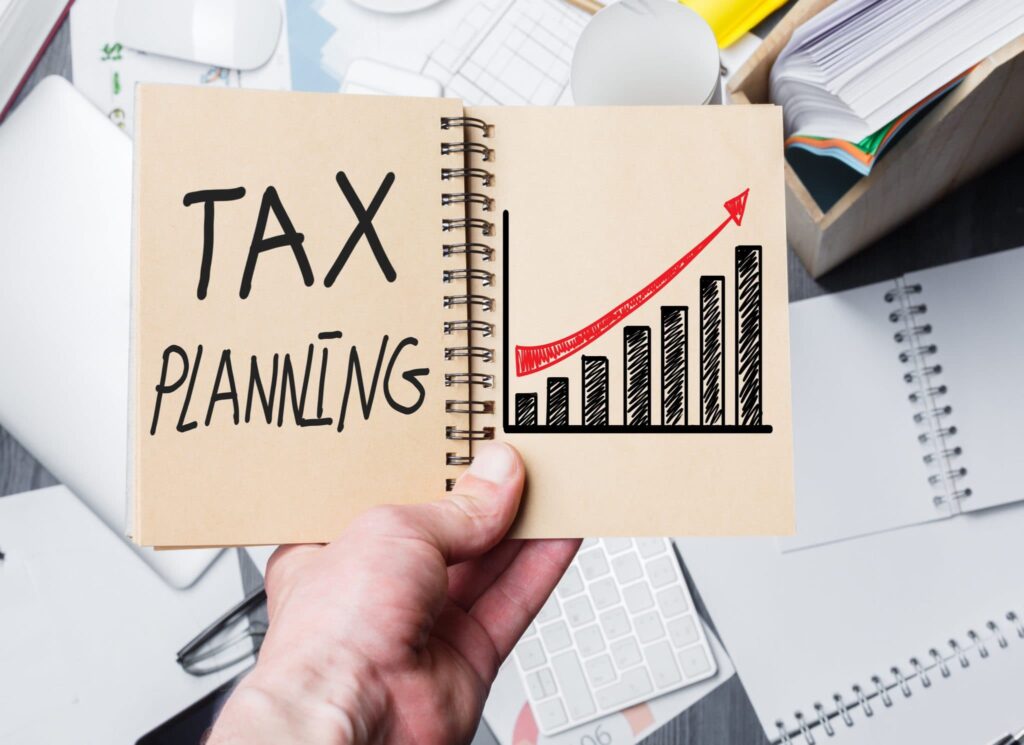Tax planning is an essential aspect of managing financial health, whether for individuals or businesses. It involves strategizing on how to manipulate tax rules in order to maximize savings and minimize liabilities. In this article, we’ll explore the fundamentals of tax planning, various strategies, and specific approaches for both individuals and businesses.
Understanding the Basics of Tax Planning
Before diving into specific techniques, it’s crucial to understand the fundamentals of tax planning. This knowledge will form the foundation upon which effective strategies can be built. Tax planning is not merely about filing your taxes correctly; it encompasses a broader approach to managing your financial resources in a way that minimizes tax liabilities while maximizing potential returns.
The Importance of Tax Planning
Effective tax planning allows you to take advantage of deductions, credits, and exemptions, ultimately reducing your tax liability. By being proactive rather than reactive, taxpayers can create a more favorable financial position. This proactive approach can lead to significant savings over time, allowing individuals and businesses to reinvest those funds into growth opportunities or savings.
Moreover, tax planning provides clarity regarding your financial goals. By understanding how different strategies affect your tax situation, you can make informed decisions that align with your long-term objectives. For instance, knowing the implications of retirement account contributions or the timing of capital gains can influence your overall investment strategy and help you achieve financial independence sooner.
Key Concepts in Tax Planning
Several key concepts are foundational to effective tax planning:
- Tax Bracket: Understanding the income thresholds where higher tax rates apply helps in making optimal income-generating decisions. This knowledge can guide you in timing income or accelerating deductions to stay within a lower tax bracket.
- Tax Deductions: Familiarity with eligible deductions like mortgage interest, medical expenses, and business-related costs can significantly reduce taxable income. Additionally, keeping meticulous records of expenses throughout the year can ensure that you don’t overlook potential deductions come tax time.
- Tax Credits: Unlike deductions that reduce taxable income, tax credits directly lower the tax owed, making them highly beneficial. Some credits are even refundable, meaning they can result in a refund even if you owe no taxes.
By mastering these concepts, you can better navigate the complexities of the tax system and develop strategies that work for your financial situation. Furthermore, understanding the nuances of tax laws and regulations can empower you to take advantage of opportunities such as tax-loss harvesting or utilizing tax-advantaged accounts like Health Savings Accounts (HSAs) and Flexible Spending Accounts (FSAs). These tools not only provide immediate tax benefits but also contribute to long-term financial health.
Different Tax Planning Strategies
Tax planning can broadly be categorized into short-term and long-term strategies. Understanding these distinctions is crucial for effective financial management. Each approach serves a unique purpose and can significantly impact your overall financial health, making it essential to evaluate both in conjunction.
Short-Term Tax Planning Strategies
Short-term tax planning strategies emphasize immediate savings and should be reviewed regularly. Some effective techniques include:
- Timing Income and Deductions: Deferring income to a later year or accelerating deductions can optimize your tax position for the current year.
- Maximizing Contributions: Taking full advantage of retirement account contributions (e.g., 401(k) or IRA) can provide immediate tax benefits.
- Reviewing Withholdings: Adjusting your tax withholdings through the W-4 form ensures that you are not overpaying taxes throughout the year.
These strategies are not one-size-fits-all, and their effectiveness will vary based on individual circumstances and income profiles. For instance, individuals with fluctuating incomes, such as freelancers or seasonal workers, may find it particularly beneficial to time their income and deductions strategically. Regularly reviewing your financial situation can also help identify opportunities for tax savings that might otherwise be overlooked.
Long-Term Tax Planning Strategies
Long-term tax planning is about building a sustainable financial strategy that maximizes savings over time. Consider the following approaches:
- Investing in Tax-Advantaged Accounts: Utilizing accounts like 529 plans for education or health savings accounts (HSAs) can provide tax-free growth.
- Estate Planning: Planning for the eventual transfer of wealth can both mitigate taxes and ensure that your beneficiaries are financially cared for.
- Diversified Investments: Balancing investments in tax-efficient vehicles versus those that may incur higher tax liabilities can lead to long-term optimization.
By implementing long-term acts of tax planning, you can create a stable path towards financial recovery and asset accumulation. Additionally, understanding the implications of capital gains taxes on your investments can guide you in making more informed decisions about when to buy or sell assets. This foresight can be particularly advantageous in volatile markets, where timing can significantly influence your tax obligations and overall investment returns. Furthermore, regularly revisiting and adjusting your long-term strategies in response to changing tax laws or personal circumstances can enhance your financial resilience over time.
Tax Planning for Individuals
Individuals face unique tax implications compared to businesses. Therefore, personalized strategies become essential to achieve effective financial management.
Tax Deductions and Credits
For individuals, understanding the range of available deductions and credits is vital. Common deductions that are frequently overlooked include:

- State and Local Taxes: Ensure to keep track of both state income and property taxes, which can be deducted on your federal return.
- Medical Expenses: Deductible medical expenses that exceed a specific percentage of your adjusted gross income (AGI) can lead to substantial savings.
- Student Loan Interest: Interest paid on student loans can be deducted from taxable income, providing relief for recent graduates.
Tax credits like the Earned Income Tax Credit (EITC) can have a significant impact on the overall tax burden, so awareness is key. Additionally, credits for education expenses, such as the American Opportunity Tax Credit, can help offset the costs of higher education, making it easier for individuals to invest in their future without being overwhelmed by debt.
Retirement Savings and Tax Planning
Retirement savings play a crucial role in tax planning. Contributions to retirement accounts such as traditional IRAs reduce taxable income for the year they are made.
Additionally, understanding the implications of withdrawing from retirement accounts can help plan for tax efficiency during retirement. Savvy individuals will develop strategies to convert traditional accounts into Roth IRAs to take advantage of tax-free growth and withdrawals in the future. This conversion can be particularly beneficial during years when an individual’s income is lower, allowing them to pay taxes on the converted amount at a reduced rate.
Moreover, utilizing employer-sponsored retirement plans, such as 401(k)s, not only helps in building a nest egg but also often comes with employer matching contributions, which is essentially free money. Individuals should be aware of the contribution limits and the benefits of maximizing these contributions to enhance their long-term financial security while simultaneously lowering their current taxable income.
Tax Planning for Businesses
Business tax planning can be more complex than individual tax planning due to the various structures, deductions, and credits applicable to corporations. Understanding the nuances of tax regulations is crucial for business owners to navigate the financial landscape effectively.
Business Expenses and Tax Deductions
Businesses should keep meticulous records of allowable expenses, such as:
- Employee Salaries and Benefits: These can be fully deducted from taxable income.
- Operating Expenses: Costs related to rent, utilities, and supplies are generally eligible for deductions.
- Depreciation: Investments in property and equipment can be depreciated, providing an annual deduction that reduces taxable income.
Effective management of these expenses can significantly lessen a company’s tax liability and leave more funds for reinvestment or distribution to shareholders. Additionally, businesses should consider the benefits of tax-efficient investment strategies, such as utilizing tax-deferred retirement plans for employees, which not only serve as a retention tool but also contribute to reducing taxable income.
Tax Planning for Small Businesses
Small businesses, especially sole proprietorships and partnerships, benefit enormously from tax planning due to their unique tax treatment. Strategies include:
- Choosing the Right Business Structure: The legal structure affects tax rates and deductions available. Considering S-Corps or LLCs may provide advantageous tax implications.
- Utilizing the Qualified Business Income Deduction: Small business owners may qualify for a deduction up to 20% of their qualified business income, significantly lowering taxable income.
- Tax Credits for Hiring: Incentives for hiring veterans, long-term unemployed individuals, or those from underrepresented groups can also relieve tax burdens.
Incorporating these strategies helps small businesses not only remain compliant but also thrive financially. Furthermore, small business owners should also explore the potential of tax deferral strategies, such as setting up retirement plans or health savings accounts, which can provide immediate tax benefits while also securing long-term financial health for both the business and its employees. By leveraging these tools, small businesses can create a more sustainable financial model that supports growth and stability in an ever-evolving marketplace.
Advanced Tax Planning Strategies
For those with more complex financial situations, advanced tax planning strategies may be warranted to further optimize tax efficiency.
Estate Planning and Taxes
Estate planning is crucial for both effective wealth transfer and minimizing tax liabilities. Key strategies include:
- Gift Tax Exemptions: Understanding annual gift exclusions allows individuals to pass on wealth to heirs without incurring gift taxes.
- Trusts: Establishing trusts can provide tax benefits while ensuring assets are distributed according to specific wishes.
- Life Insurance Policies: Properly structured life insurance policies can offer liquidity to cover estate taxes, ensuring that beneficiaries receive intended assets.
Engaging with financial and legal experts often yields the most effective estate planning strategies. Additionally, considering the use of irrevocable trusts can provide further advantages, as they remove assets from the taxable estate, potentially reducing estate taxes significantly. Furthermore, incorporating a charitable remainder trust can allow individuals to support philanthropic causes while receiving an income stream during their lifetime and reducing their taxable estate.

Charitable Giving and Tax Planning
Charitable donations can serve as both a means to support important causes and as a beneficial tax deduction. Taxpayers can:
- Itemize Deductions: Allowing charitable contributions to be deducted on Schedule A of your tax return may significantly lower tax liability.
- Donor-Advised Funds: These funds provide tax benefits while allowing for delayed distribution decisions.
- Gifting Appreciated Assets: Donating stocks or property that have increased in value can eliminate capital gains taxes on the appreciation.
Strategically incorporating charitable giving into your financial plan can enhance your tax profile while making a positive impact on society. Moreover, establishing a private foundation can provide a structured way to manage charitable contributions while allowing for greater control over how funds are distributed. This approach not only maximizes tax deductions but also enables individuals to create a lasting legacy aligned with their values and philanthropic goals.
In conclusion, tax planning is a comprehensive endeavor requiring knowledge and foresight. Whether you are an individual or managing a business, understanding various strategies will empower you to optimize your financial position effectively.
See Also: Property law: key insights for real estate investors.

